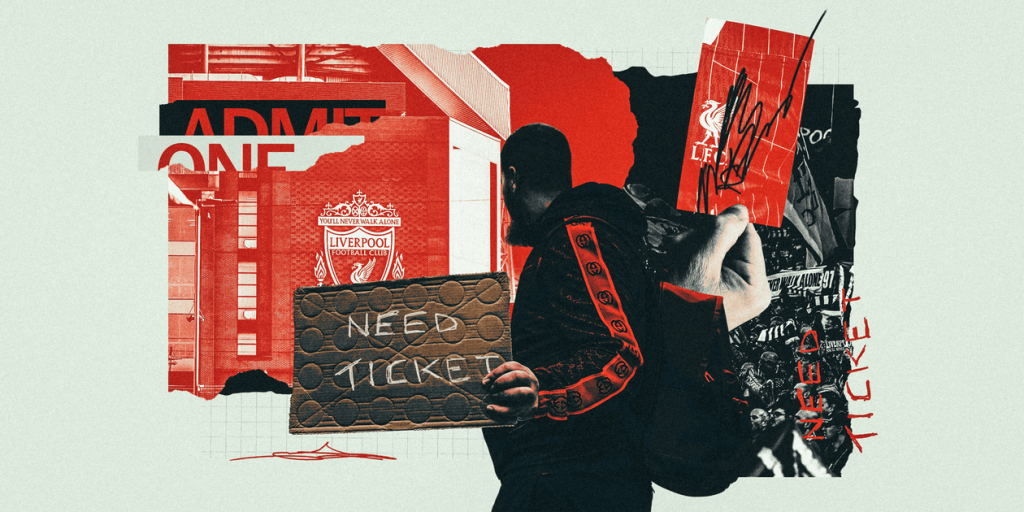On a bitterly cold night outside Anfield, Liz O’Driscoll, who traveled from County Kerry in Ireland with her son, Liam, is devastated to learn that the two tickets she bought for the Premier League game against Aston Villa are fake. Many other supporters also express their shock and frustration at having been scammed by illegitimate ticket sellers. Given the high demand for Liverpool’s matches, which far outstrips the supply of available tickets, touts are capitalizing on the situation by selling genuine tickets at inflated prices or peddling fake ones. The problem is especially pronounced among international fans, many of whom are visiting Anfield for the first time.
The shift from paper to digital tickets in recent years has arguably made it easier for touts to operate. Organized crime gangs have targeted Liverpool by infiltrating their ticket office and mounting cyberattacks to illegally acquire tickets. In response, Liverpool has been taking aggressive action against ticket touting. Last season, the club shut down nearly 100,000 fake ticketing accounts, canceled 1,500 tickets, and issued various sanctions. This season, they have deactivated almost 20,000 accounts, cancelled 1,200 tickets, and continued to issue lifetime bans. Liverpool has staff members dedicated to combating touting and uses data analysis to identify anomalies in ticket sales. Multiple investigations remain ongoing which is expected to result in further sanctions.
The involvement of organized crime has complicated the club’s efforts to clamp down on touting. Touts have deployed various schemes to sidestep detection, including the use of burner phones and directly scanning buyers at the turnstiles. As a result, estimating the extent of touting is difficult, but club officials believe it involves thousands of seats every home game. Liverpool works closely with local law enforcement to seek criminal convictions, but the process can be slow. Their efforts have resulted in some convictions, including two men who were found guilty of defrauding fans out of thousands of pounds.
One of the major obstacles faced by the club is secondary ticketing sites registered abroad, which fall outside the UK’s legal jurisdiction. Some of these sites sell tickets at exorbitant prices, sometimes up to 10 times their face value. Other fans have reported buying tickets that turned out to be fake or cloned. Liverpool is also grappling with fraudulent ticketing accounts within the club’s own online systems. The club is considering taking civil action for asset recovery to make it financially punishing for touts.
Despite their efforts, Liverpool still struggles to fully eradicate ticket touting. The club has approached social media companies for assistance, but these platforms have shown little interest in joining the fight. One area of success has been improving access for local fans, who were being outcompeted by touts. Changes to rules limiting the number of accounts tied to a payment card and registration periods for local sales have deterred touts.
Liverpool has also been collaborating with Premier League rivals Manchester United, Chelsea, and Arsenal to combat ticket touting. They’ve held meetings to share data and information about effective measures against touting. Despite their efforts, touting likely cannot be fully eliminated, but Liverpool hopes to make it marginal at best. Following her unpleasant experience, Liz O’Driscoll gets lucky and acquires two face-value tickets for the game against Villa, but recognizes that many others who’ve been sold fake tickets haven’t been as fortunate. She criticizes those responsible for ripping people off, questioning how they can sleep at night.


